A Leonardo da Pisa Collection
Fibonacci's
Italy
 The
Piazza
del Duomo in Pisa, Italy is one of the most visited tourist sites in
the world. Millions flock here annually to see
the famous campanile, the LeaningTower, where Galileo experimented to
disprove
Aristotle's dictum that the rate of a falling body toward the Earth's
surface is proportional to its body weight. The
Piazza
del Duomo in Pisa, Italy is one of the most visited tourist sites in
the world. Millions flock here annually to see
the famous campanile, the LeaningTower, where Galileo experimented to
disprove
Aristotle's dictum that the rate of a falling body toward the Earth's
surface is proportional to its body weight.
 In
addition to experimenting with falling bodies, Galileo is reputed to
have deduced the law of the pendulum from watching the oscillations of
the great chandelier opposite the altar in the Duomo. A few
meticulous
historians dispute this saying the the lamp was not installed until
1587 and the observation of isochronism is supposed to have happened in
1583. Still visitors will enjoy seeing the chandelier as well as
the Leaning Tower. In
addition to experimenting with falling bodies, Galileo is reputed to
have deduced the law of the pendulum from watching the oscillations of
the great chandelier opposite the altar in the Duomo. A few
meticulous
historians dispute this saying the the lamp was not installed until
1587 and the observation of isochronism is supposed to have happened in
1583. Still visitors will enjoy seeing the chandelier as well as
the Leaning Tower.
 Another
pleasure awaits mathematicians. By tradition, there are three
buildings in a cathedral complex - a large cathedral, a bell
tower and a
baptistery. The Piazza in Pisa has a fourth structure, a
restored building honoring outstanding citizens of the area. In
this open compound,
the Camposanto Monumentale,
is found the statue of Leonardo da Pisa, better know today as
"Fibonacci" of the celebrated Fibonacci sequence 1, 1, 2, 3, 5,
8, 13, . . . . His statue is seen
on the right.
Another
pleasure awaits mathematicians. By tradition, there are three
buildings in a cathedral complex - a large cathedral, a bell
tower and a
baptistery. The Piazza in Pisa has a fourth structure, a
restored building honoring outstanding citizens of the area. In
this open compound,
the Camposanto Monumentale,
is found the statue of Leonardo da Pisa, better know today as
"Fibonacci" of the celebrated Fibonacci sequence 1, 1, 2, 3, 5,
8, 13, . . . . His statue is seen
on the right.
 The University
area lies just south of the Duomo. Tour books write that much of
the exterior has remained unchanged since the time of Galileo 400 years
earlier. But Fibonacci's life in the city is
twice as long ago. Students still eat their lunch on the grass in
the
Piazza when there are not too many tourists and souvenir stands.
One would
like to
think that they join us in remembering two natives of Pisa who made
lasting and significant contributions to civilization. The University
area lies just south of the Duomo. Tour books write that much of
the exterior has remained unchanged since the time of Galileo 400 years
earlier. But Fibonacci's life in the city is
twice as long ago. Students still eat their lunch on the grass in
the
Piazza when there are not too many tourists and souvenir stands.
One would
like to
think that they join us in remembering two natives of Pisa who made
lasting and significant contributions to civilization.
A View of the
Piazza
 The
Camposanto Monumentale housing The
Camposanto Monumentale housing
the Fibonacci statue
as seen on the left.
A View of the
Fibonacci Pedestal
 His
dates of birth and death can only be
estimated. His
dates of birth and death can only be
estimated.
Other Views
 The Statue The Statue
 The Camposanto Monumentale The Camposanto Monumentale
 The Chandelier in the interior
of the Duomo The Chandelier in the interior
of the Duomo
seen here just to the left of
the stained
glass Madonna.
From Italy
And your favorites?
We invite you to contribute a favorite photograph as a
"deposit"
in the National Curve Bank. Naturally we give you full
credit.
See  Submit
a Curve. Submit
a Curve.
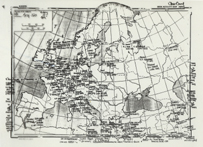
|
|
|
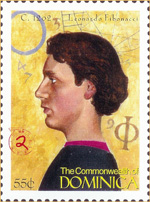
Leonardo of Pisa
(c. 1175 - 1250)
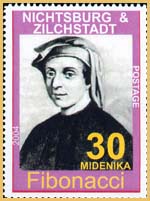
a.k.a. Fibonacci
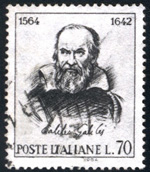
Galileo Galilei
(1564-1642)
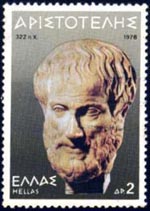
Aristotle
(384-322 B.C.)
Also from
the neighboring area is
another genius, Leonardo da Vinci
seen here in a reproduction of his
self-portrait.
|
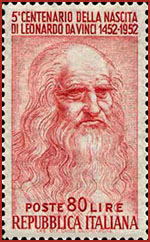
|
|